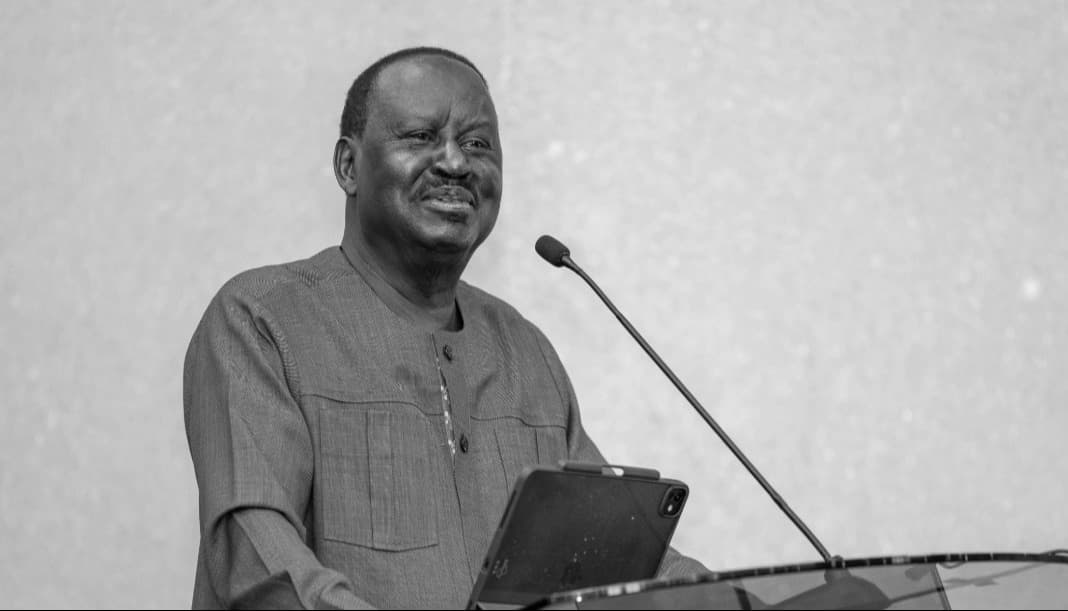We're loading the full news article for you. This includes the article content, images, author information, and related articles.
Former Prime Minister Raila Odinga has been posthumously conferred the Chief of the Order of the Golden Heart (C.G.H.), Kenya's highest civilian honour, days after his passing, recognising his decades of impactful leadership and contributions to national development.

In a significant national gesture, former Prime Minister Raila Odinga has been posthumously awarded the Chief of the Order of the Golden Heart of Kenya (C.G.H.), the nation's highest civilian honour. The conferment, announced by President William Ruto in a gazette notice dated Monday, October 20, 2025, and during Mashujaa Day celebrations, recognises Odinga's profound influence on Kenya's political landscape and his dedication to public service.
President Ruto lauded Odinga as a "statesman of rare moral courage, a visionary patriot, a unifier of the people and a champion of justice." The award comes just five days after Odinga's death on Wednesday, October 15, 2025, at the age of 80.
The Chief of the Order of the Golden Heart is the highest rank within the Order of the Golden Heart, which is awarded by the Head of State to individuals who have made outstanding contributions to the nation. This honour is typically reserved for heads of state, eminent public figures, and those who have demonstrated exceptional service to the country.
Raila Odinga's political career spanned over four decades, during which he was a central figure in Kenya's democratic evolution. He served as Prime Minister from April 17, 2008, to April 9, 2013, a position created as part of a power-sharing agreement following the disputed 2007 general elections. This agreement, brokered by former UN Secretary-General Kofi Annan in February 2008, was crucial in ending the post-election violence that had rocked the nation.
Odinga ran for the presidency five times (1997, 2007, 2013, 2017, and 2022), consistently advocating for electoral justice and constitutional reforms. His activism also included a significant role in championing multiparty democracy in the 1990s and contributing to the promulgation of the 2010 Constitution.
The Order of the Golden Heart is established under the National Honours Act of 2013. The President confers the award upon the advice of a National Honours and Awards Committee within the Office of the President. The committee evaluates candidates based on their contributions to governance, peace, humanitarian causes, innovation, or socio-economic development.
The posthumous conferment on Odinga marks a rare instance of a non-head-of-state receiving the highest class of the award, and it is the first time it has been bestowed upon an opposition leader.
President Ruto, in his address, highlighted Odinga's resilience and unwavering commitment to Kenya's progress. "It was never about Raila becoming president; it was about Kenya having a good president. He believed that Kenya's best days were still ahead. He endured prison, persecution and political defeat yet never gave in to bitterness or hopelessness," Ruto stated. Government Spokesman Isaac Mwaura also described Odinga as "a great hero and statesman, whose indomitable spirit shaped our nation's journey."
The posthumous honour for Odinga, a figure who often stood in opposition to the ruling government, is widely seen as a gesture of national reconciliation and unity. This move could help foster a more cohesive political environment, acknowledging the contributions of leaders across the political spectrum. However, some past power-sharing deals in Kenya have been criticised for potentially weakening democratic competition and accountability.
Mashujaa Day, celebrated annually on October 20, is a national holiday dedicated to honouring Kenyan heroes. This year's celebrations, held at Ithookwe Stadium in Kitui County, proceeded despite a seven-day national mourning period declared for Odinga.
The conferment of this high honour on Raila Odinga is expected to solidify his place in Kenya's history as a pivotal figure. Future political discourse may reflect on the implications of such national recognition for opposition leaders and its potential to shape political reconciliation efforts. The government's continued emphasis on unity following Odinga's passing will be a key area to observe.
Keep the conversation in one place—threads here stay linked to the story and in the forums.
Sign in to start a discussion
Start a conversation about this story and keep it linked here.
Other hot threads
E-sports and Gaming Community in Kenya
Active 9 months ago
The Role of Technology in Modern Agriculture (AgriTech)
Active 9 months ago
Popular Recreational Activities Across Counties
Active 9 months ago
Investing in Youth Sports Development Programs
Active 9 months ago
Key figures and persons of interest featured in this article